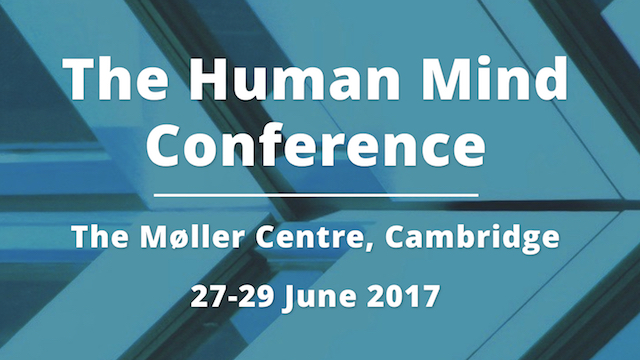Patrick Haggard, "New approaches to volition and agency"
Duration: 28 mins 25 secs
Share this media item:
Embed this media item:
Embed this media item:
About this item

| Description: | This is a talk from Patrick Haggard (University College London). It formed part of Session Two of The Human Mind Conference, "The Human Agent: Intention & Action." |
|---|
| Created: | 2017-10-24 14:52 |
|---|---|
| Collection: | The Human Mind Conference |
| Publisher: | University of Cambridge |
| Copyright: | Patrick Haggard |
| Language: | eng (English) |
| Distribution: |
World
|
| Explicit content: | No |
| Aspect Ratio: | 16:9 |
| Screencast: | No |
| Bumper: | UCS Default |
| Trailer: | UCS Default |
| Abstract: | All known societies have some concept of individual responsibility for action, and the capacity for voluntary action is considered a key feature of adult human mental life. Nevertheless, scientific studies of volition are controversial, and suffer from several methodological difficulties. I will attempt to define voluntary action from a neurocognitive perspective, and discuss what happens in the brain prior to voluntary actions. I will report recent EEG studies that identify a consistent process of neural noise reduction in frontal areas prior to reasons-responsive, endogenous, voluntary actions. In the second part of my talk I will turn to the sense of agency: volition is arguably important only to the extent that it gives humans the capacity to transform their environment through their own actions: to make things happen. This capacity has a subjective aspect, called “sense of agency”, which I define as the feeling that one controls one’s own actions, and, through them, events in the external world. One school of psychologicalthought viewssense of agency as the result of a predictive neural computation that compares predictions about the consequences of action with what actually happens. Another school views sense of agency as a narrative, or even an illusion, that the mind composes retrospectively to explain what we find we have done. I will describe how an “implicit” measure of agency, based on the perceived temporal association between an action and its outcome, reveals both predictive and retrospective agency processing in the human brain. Next I will show how sense of agency reflects our ability to learn by experience to achieve our desired goals. |
|---|---|
Available Formats
| Format | Quality | Bitrate | Size | |||
|---|---|---|---|---|---|---|
| MPEG-4 Video | 640x360 | 1.93 Mbits/sec | 413.44 MB | View | Download | |
| WebM | 640x360 | 643.23 kbits/sec | 133.95 MB | View | Download | |
| iPod Video | 480x270 | 520.45 kbits/sec | 108.32 MB | View | Download | |
| MP3 | 44100 Hz | 249.79 kbits/sec | 52.05 MB | Listen | Download | |
| Auto * | (Allows browser to choose a format it supports) | |||||

